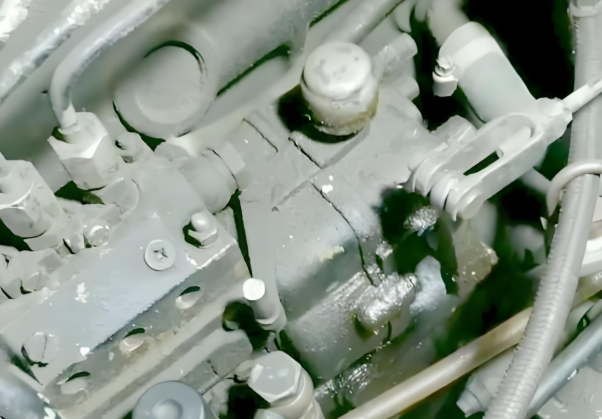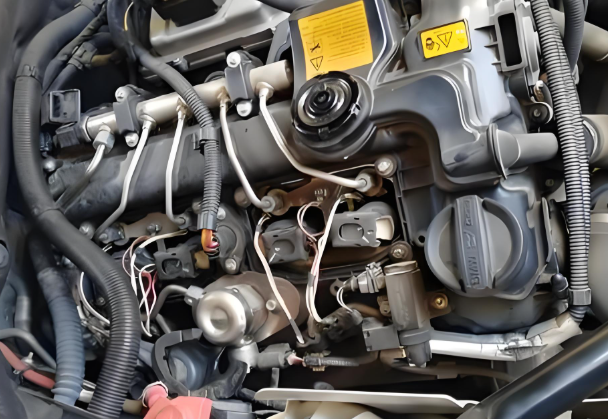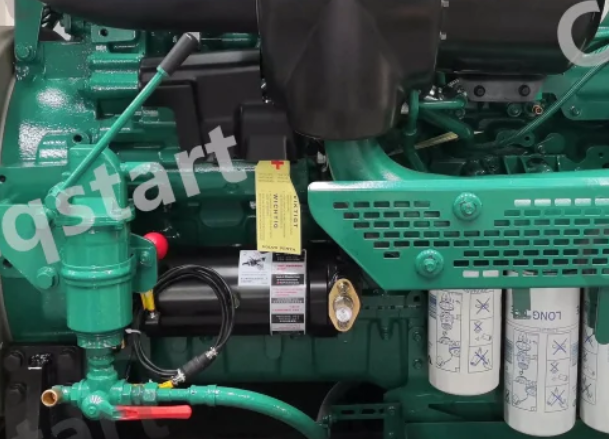When operating a diesel engine, many people worry about one question: “Can a diesel engine become flooded when trying to start it, like a gasoline engine?” This is actually the core query many people search for “Can you flood a diesel engine trying to start it.”
The question is very common among users in fields such as cars, trucks, construction machinery, and marine vessels. From a professional perspective, this article will give a detailed answer to that question and take an in-depth look at the causes of diesel engine starting difficulties and how to solve them.
Part 1. What is Diesel Engine Flooding?
In gasoline engines, “flooding” refers to a condition where too much fuel enters the combustion chamber, causing insufficient air and preventing the spark plugs from igniting the air-fuel mixture. In this situation, the engine fails to start and may emit a strong smell of gasoline.
However, diesel engines operate differently from gasoline engines. Diesel engines use compression ignition and do not have spark plugs. Fuel will only ignite when the compressed air reaches a sufficiently high temperature. Therefore, the common “flooding” phenomenon seen in gasoline engines does not occur in diesel engines.

Part 2. Can You Flood a Diesel Engine Trying to Start It?
Many people ask: can you flood a diesel engine trying to start it? The answer is no, and here’s why:
1. Alternative Ignition Method
Contrary to gasoline engines’ usage of spark plugs, diesel engines employ compression ignition. The cylinder’s air is compressed to a hot temperature prior to the fuel injection and burning.
This means that if even a small additional amount of fuel enters the cylinder, it will nevertheless burn as soon as the proper temperature is reached, and the engine cannot be “flooded” as in one fueled by gasoline.
2. Controlled Fuel Injection
Modern diesel engines use high-pressure common rail fuel systems, in which the Engine Control Unit (ECU) precisely manages both the quantity of fuel and injection timing.
This very precise control ensures the engine is supplied with exactly the amount of fuel for combustion needed, thereby eliminating the overfueling problem causing flooding in gasoline engines.
3. Combustion Characteristics Differences
Diesel fuel is ignited by high pressure rather than by the application of an external spark. Thus, even when more fuel is injected than is utilized, the engine will not stall.
Instead, the surplus fuel will burn off, usually producing black exhaust smoke, but will not interfere with starting the engine. This makes diesel engines naturally resistant to the flooding phenomenon common in gasoline engines.

Part 3. Common Causes of Diesel Engine Starting Problems
Although diesel engines cannot be “flooded,” starting difficulties are still relatively common. Some of the main causes of diesel engine starting problems include:
Diesel System Issues
Air trapped in the fuel lines or clogged fuel filters can prevent diesel from entering the combustion chamber properly. A tiny air bubble or partially clogged filter can even result in disruption to fuel supply, which can halt starting of the engine.
Lower Compression
Diesel engines rely on high cylinder compression to ignite the fuel. Faulty cylinders, pistons, or piston rings decrease compression pressure, lowering the cylinder temperature and increasing the difficulty of ignition. This is a common cause of hard starts in older motors.
Electrical Problems
Low electrical power from a weak battery or faulty starter motor can reduce the engine cranking speed. High initial rotation is required by diesel engines to supply the necessary compression for ignition. Low or failing voltage will result in extreme delay or may even stop engine start.
Cold Weather Conditions
Diesel fuel becomes thicker when cold and loses its ability to atomize properly when injected. Uncomplete combustion caused by improper fuel atomization causes hard starts in cold weather.
Failure of Preheating Devices
Glow plugs (preheating devices) are necessary for cold starting a diesel engine. If there is a defective glow plug or if a glow plug has failed, the cylinder will not heat enough to ignite the fuel, causing hard starts.
Awareness of these parameters can help operators decide the root cause of starting problems and take the appropriate measures, without fear of “flooding” as in the case of gasoline engines.

Part 4. Why Diesel Engines Are Sometimes Mistakenly Thought to Be “flooded”?
Many drivers mistakenly believe their diesel engine is “flooded” when it fails to start. This usually happens when they repeatedly attempt to crank the engine after an unsuccessful start. Because the battery runs down and the starter motor gets hot, the engine may appear to struggle to be started because there’s too much fuel.
In reality, the real causes are normally insufficient starting power or fuel system issues and not excessive fuel. Repeatedly attempting to start under these conditions not only fails to solve the problem but can also damage the battery and starter motor, reducing their lifespan.
This misunderstanding is common because the symptoms—engine cranking without starting and smoke from the exhaust, superficially resemble the effects of flooding in gasoline engines. Recognizing the actual underlying causes, such as low battery voltage, clogged fuel filters, or weak fuel pressure, is essential for correct troubleshooting and preventing unnecessary wear on the engine’s electrical and fuel systems.
Part 5. Prevention or Repair of Cranking Trouble in Diesel Engines
Though diesel engines cannot be flooded, cranking trouble may occur under certain circumstances. The following are some guaranteed means to avoid or correct them:
1. Maintenance of the Fuel System
Ensure fuel lines are not leaking air and that fuel filters are clean. Regular checkup and filter replacement when clogged maintains proper fuel supply, preventing starting difficulties because of fuel flow issues.
2. Use Proper Battery Power
A fully charged battery is essential to providing sufficient electrical energy to the starter motor. Batteries that are weak may reduce cranking speed, making it harder for the diesel engine to develop compression for ignition. Battery checks and maintenance are essential.
3. Check Fuel Injectors and Compression
Fuel injector testing ensures proper fuel atomization. At the same time, measurement of cylinder compression will identify worn pistons, rings, or cylinders that will reduce combustion efficiency. Repairing these mechanical issues helps to improve start reliability.
4. Use Preheating Devices
Glow plugs or alternative preheating systems are especially important in cold temperatures. Make certain preheating equipment is properly functioning prior to a cold start attempt. This ensures the cylinder temperature will be sufficient for diesel ignition.
5. Emergency Backup Starting Procedures
In critical applications such as seaborne craft, mining equipment, or oil field equipment, a spring starter can be a backup. A spring starter can rotate the diesel engine without any battery or external power source, providing a reliable alternative when electrical systems fail or in remote locations.

Advantages of Spring Starter:
- Independent of battery and motor: Avoids starting failures caused by insufficient electrical power.
- Simple structure: Requires almost no complex maintenance.
- Reliable in harsh environments: Performs well in conditions such as humidity, low temperatures, marine settings, or mining sites.
- Safe and environmentally friendly: Produces no electrical sparks, making it suitable for flammable or explosive environments.
With these benefits, even if the battery is weak or the starter motor fails, a diesel engine can still be reliably started using a spring starter.
Bottom Line
So, can a diesel engine be “flooded” from repeated attempts to start it? The answer is no. Diesel engine starting failures are usually caused by issues with the battery, starter motor, fuel system, or compression, not by excess fuel. The key is that a diesel engine requires sufficient starting power.
When the electric starting system fails, a spring starter, like Cqstart spring starter can serve as a reliable solution, ensuring your diesel engine starts smoothly under any conditions.

